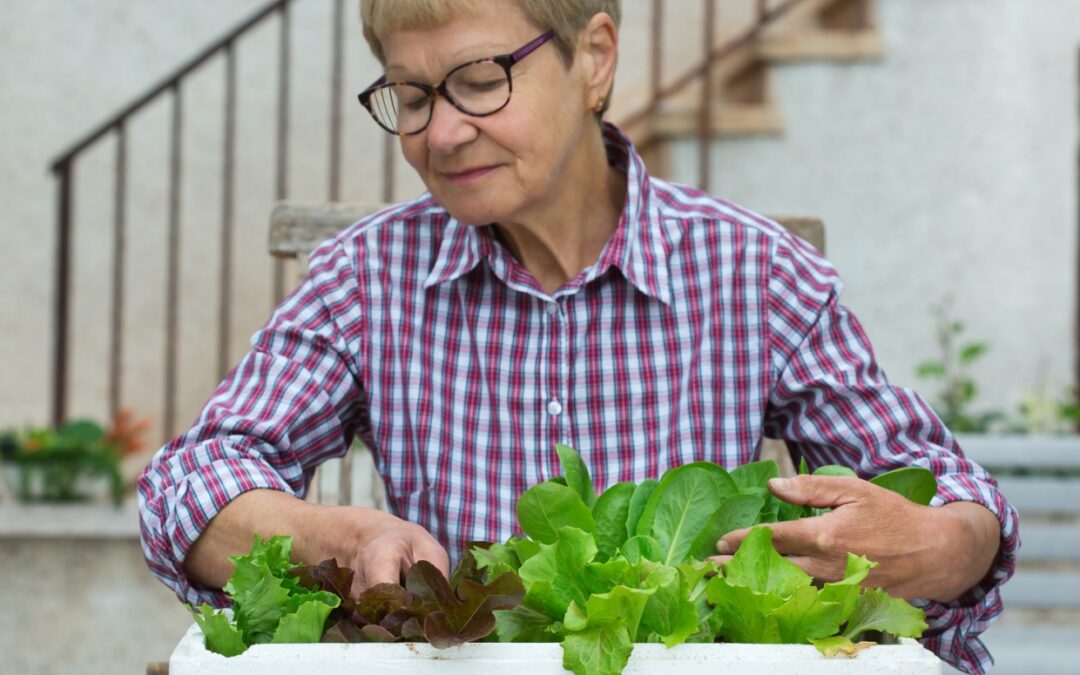
by wendigoadmin | Jan 4, 2025 | Franklin Care Blog
When it comes to caring for a loved one, there’s no one size-fits-all solution. Every individual is unique, and their care should reflect that. Personalized home care is all about creating a plan that fits a person’s specific needs, preferences, and lifestyle. It ensures that your loved one receives the right support while remaining in the comfort of their home.
If you’re new to the idea of personalized home care, it’s natural to have questions. What does it include? How does it work? Let’s break it down and explore what you can expect.
1. A Plan Designed Just for You
The heart of personalized home care is the custom care plan. Before starting, a professional caregiver or care agency will assess your loved one’s needs. This involves understanding their health, daily
routines, and preferences. Does your loved one need help with bathing, dressing, or preparing meals? Do they have a specific medical condition, like diabetes or dementia, that requires extra attention? These questions help shape a care plan that’s tailored to their unique situation.
A customized approach means the care is focused and effective. It also ensures your loved one feels valued and comfortable.
2. Support from Caring Professionals
Personalized home care wouldn’t be possible without compassionate caregivers. These are trained professionals who not only provide practical help but also offer kindness and understanding.
Caregivers can assist with everyday tasks like housekeeping, running errands, or reminding your loved one to take their medication. But they’re more than just helpers. They build relationships with their clients, offering companionship and emotional support.
When choosing a care provider, make sure they hire caregivers who are trained, experienced, and thoroughly vetted. This guarantees your loved one is in good hands.
3. A Safe and Comfortable Home Environment
Safety is a top priority in home care. Caregivers can help identify and fix potential risks in the home, like loose rugs or poor lighting, which could lead to falls. They also make sure medications are taken on time and stored correctly.
By addressing safety concerns, caregivers provide peace of mind to both the client and their family.
Knowing your loved one is safe allows you to worry less and focus more on spending quality time together.
4. Emotional and Social Connection
Personalized home care isn’t just about physical assistance; it’s about improving the person’s overall
well-being. Loneliness and isolation are common among older adults, especially if they live alone. Caregivers offer companionship, whether it’s by chatting over a cup of tea, playing cards, or taking a
walk. They can also help your loved one stay connected with family and friends, keeping their social life active.
This emotional and social support makes a big difference in someone’s happiness and mental health.
5. Flexibility to Meet Changing Needs
Life is unpredictable, and needs can change over time. A key benefit of personalized home care is its flexibility. Care plans are regularly reviewed and updated to make sure they still meet your
loved one’s needs. Whether they require more assistance as they age or recover from a surgery, the care
plan can adapt. This ensures continuous support, no matter what life brings.
6. Peace of Mind for Families
One of the greatest benefits of personalized home care is the relief it brings to families. You don’t have to do everything on your own.Professional caregivers can share the responsibility, giving you time to recharge and focus on your own well-being.
Final Thoughts
Personalized home care is about more than just assistance. It’s about helping your loved one live their best life—comfortable, happy, and supported. At Franklin Home Health Agency, we specialize in creating personalized care plans that make a real difference. If you’re considering home care for a loved one, we’re here to guide you every step of the way

by wendigoadmin | May 27, 2024 | Franklin Care Blog
When it comes to caring for a loved one, the decision between home health care and a nursing home can be challenging. This choice requires careful consideration of many factors, including the specific needs of your loved one, the level of care required, the preferences of the individual and their family, and financial implications. This comprehensive guide will help you understand the benefits of home health care compared to nursing homes, enabling you to make an informed decision that ensures the well-being and happiness of your loved one.
COMFORT AND FAMILIARITY
One of the most significant advantages of home health care is that it allows your loved one to remain in the comfort of their own home. The familiar surroundings can provide a sense of security and continuity that is often lost when moving to a nursing home. The emotional and psychological benefits of staying at home are profound, as individuals can continue to live in an environment filled with their personal belongings, memories, and comforts. This familiarity can significantly reduce stress and anxiety, which are common when transitioning to a new living situation like a nursing home.
Home health care means your loved one can continue to enjoy their personal space, sleep in their own bed, and be in a place where they have established routines. These elements of home life are essential for maintaining a sense of normalcy and independence, which can positively impact mental health and overall well-being.
PERSONALIZED CARE
Home health care offers a highly personalized approach to caregiving. With home health care, a dedicated caregiver or team of caregivers provides one-on-one attention, tailoring their services to meet the specific needs of your loved one. This individualized care can include assistance with daily activities such as bathing, dressing, and meal preparation, as well as more specialized medical care like medication management, wound care, and physical therapy.
In contrast, nursing homes often have many residents, and caregivers must divide their attention among several people. This can sometimes lead to less personalized care, as staff may be stretched thin and unable to provide the same level of individualized attention that a home health care provider can. The personalized care offered by home health agencies can lead to better health outcomes, as caregivers are more attuned to the specific needs and preferences of the individual.
MAINTAINING INDEPENDENCE
For many seniors, maintaining independence is a top priority. Home health care allows your loved one to continue living independently, with the support they need to manage their daily activities. They can stick to their established routines, make their own choices, and remain active in their community. This level of independence can greatly enhance their quality of life and sense of purpose.
In a nursing home setting, residents often have less control over their daily routines and activities. Schedules are typically set by the facility, which can lead to a loss of autonomy and a sense of dependence. Home health care, on the other hand, empowers seniors to live life on their terms while still receiving the necessary support and care.
COST CONSIDERATIONS
The cost of care is a critical factor when deciding between home health care and a nursing home. Home health care can often be more cost-effective than nursing homes, especially if only part-time assistance is needed. With home health care, you have the flexibility to pay only for the services you need, whether it’s a few hours a day or around-theclock care. This flexibility can make home health care a more affordable option for many families.
Nursing homes typically have higher, all-inclusive costs that cover room and board, meals, and care services. These costs can add up quickly, and many families find that home health care is a more financially feasible option.
FLEXIBILITY AND CONTROL
Home health care offers greater flexibility in terms of care plans and schedules. You and your loved one can work with the home health agency to develop a care plan that fits your specific needs and preferences. This level of control is often not possible in nursing homes, where schedules and routines are more rigid.
EMOTIONAL AND SOCIAL BENEFITS
Staying at home can also have emotional and social benefits. Your loved one can remain close to family and friends, avoiding the emotional stress that can come with moving to a nursing home. Home health care encourages social interaction with loved ones and participation in community activities, which is crucial for mental and emotional well-being.
HEALTH AND SAFETY
Home health care professionals are trained to provide a wide range of services, from medical care to physical therapy. They can monitor your loved one’s health, manage chronic conditions, and help prevent hospital readmissions. In addition, the home environment can be modified to ensure safety, reducing the risk of falls and other accidents common in nursing homes.
MAKING THE RIGHT CHOICE
Choosing the right care option for your loved one is a personal decision that depends on many factors, including their health needs, preferences, and financial situation. It’s important to discuss these options with your family and consult with healthcare professionals to determine the best plan.
At Franklin Home Health Agency, we are dedicated to providing high-quality, personalized home health care. Our goal is to ensure your loved one receives the care they need while enjoying the comfort and familiarity of their own home. Contact us today to learn more about our services and how we can help your family make the best choice for your loved one.
QUALITY OF LIFE
Ultimately, the goal of both home health care and nursing homes is to enhance the quality of life for your loved one. However, the personalized, flexible, and comfortable nature of home health care often makes it the preferred choice for many families. By staying in their own home, surrounded by loved ones and familiar faces, seniors can enjoy a higher quality of life and greater happiness.

by wendigoadmin | Apr 29, 2024 | Franklin Care Blog
Easily overlooked in today’s fast-paced world, where medical care often seems like a series of appointments and procedures, is the emotional wellbeing of patients. However, at Franklin Home Health Agency we believe that true healthcare cannot be confined to clinical treatments. As a result, we provide compassionately oriented services that address both physical and spiritual needs; hence making us stand out as an island of hope for many.
A PERSONAL TOUCH
At Franklin Home Health Agency, however, it has come to our knowledge that every individual is unique and we therefore have our own set of needs, preferences, and aspirations. In this case therefore we do not offer standardized care plans but instead build relationships with all our clients on a personal level. Through creating meaningful connections and establishing trust between us and the client, we ensure that they feel valued, respected, and heard.
In addition to this dedicated team of caregivers goes above & beyond providing one-on-one stimulation and interaction with our clients. Whether it’s having a conversation or playing games or drinking tea together every such moment creates joy in our client’s hearts. This downtime is more than just time spent waiting; rather it provides an opportunity for companionship which helps foster a sense of belonging.
COMMUNITY ENGAGEMENT
All members of staff at Franklin Home Health Agency regard staying connected in the community as highly important. Numerous people face social isolation especially when sick thus isolated from society leading to sad lives. For this reason, we encourage participation in various community events and activities that are tailored toward our clients’ abilities and interests.
This means engaging with local art classes joining walking groups or even volunteering in some charity nearby can bring fulfillment into life by being engaged with the community in general. Using these chances for socializing & participating deeply in conversations around them, helps them retain their touch with reality reducing any loneliness among them.
INDIVIDUALIZED CARE PLANS
There is no one-size-fits-all formula in Franklin Home Health Agency as far as care provision is concerned. Every patient has his unique challenges and goals, which is why we take a personalized approach to care planning. Working together with patients and their families, our team develops individualized care plans that reflect their special needs and desires.
It may involve assistance with daily living activities, medication management, or specialized therapies since the well-being of our clients is paramount. We believe in keeping dignity & independence intact because these are key components of quality life; hence we aim to enable them to live life on their terms with the necessary support for making it happen.
A SUPPORTIVE NETWORK
At Franklin Home Health Agency we believe strongly in collaboration. We have close working relationships with our clients, family members, physicians, insurers, and other healthcare providers so that the client’s needs can be met without any delay. Developing strong partnerships and open communication networks helps foster supportive networks where the goal is always about what will benefit our patients first before anything else.
We help our clients get around to medical appointments, talking to specialists on their behalf and standing up for their rights. We aim to create a resource center that will provide an anxietyfree environment for patients navigating the murky waters of healthcare confidently.
CONCLUSION
At Franklin Home Health Agency, we understand that healing is not only about mending the physical body; instead, it entails nurturing the soul, mind, and spirit. We understand that there is more than just treating their bodies clinically; thus, we endeavor to lift the emotional well-being of our patients hence creating a sense of home, fulfillment, and happiness. We have opted for an approach that emphasizes individualized care, community connection, and collaborativeb partnerships as a means of impacting positively on those who need us most. For your care at home choose Franklin Home Health Agency and start building your way to a brighter future ahead.

by wendigoadmin | Apr 17, 2024 | Franklin Care Blog
As aging progresses, nurturing mental and physical well-being becomes more significant. Especially for the elderly who are cared for at home, being constantly involved in brain-stimulating activities is essential to maintaining an overall sense of health and vigor. At Franklin Home Health Agency we are dedicated to providing customized care plans with a variety of activities to suit each client.
In this piece, we will discuss the importance of creating a dynamic home environment for elderly people and some enriching activities that can be done from their homes.
The Importance of Stimulating Activities
Seniors often face challenges like social isolation, monotony, and cognitive decline which have a profound impact on their general life quality. Taking part in exhilarating activities acts as a formidable weapon against these situations by fostering social interaction, cognitive function, and physical fitness. These improvements made in turn enhance mood, reduce stress levels as well as bring about selffulfillment.
At Franklin Home Health Agency, we understand that everyone has unique interests, skills, and preferences. Thus we prioritize the development of personalized care plans that incorporate stimulating engagements customized to each client’s specific needs or abilities.
Activities for Seniors at Home
- Creative Pursuits: Senior adults should be encouraged to explore art and crafts such as painting and sculpturing because it is very rewarding. Set aside space with various art materials where clients can express themselves artistically. From sketching sessions to craftwork or modeling tasks there exists no end to ways people can use creatively their resources. So getting involved in creative works not only helps one’s mind but also brings out feelings of pride and accomplishment.
- Nature Therapy: Older individuals stand to gain much from associating with nature both mental and physical health benefits. Whether it involves looking after plants in pots; taking leisurely walks within the community or simply being outdoors enjoying natural beauty creates calmness in the mind. Gardening particularly is therapeutic as it involves gentle exercise, exposure to sunlight, and the ability to nurture.
- Musical Exploration: Music has a way of bringing back memories, boosting moods, as well as keeping the mind alert among elders. Advise clients to try out different types of music and have some singing or playing instruments sessions or listen to their favorite tracks. Music therapy can be tailored according to an individual’s preferences and abilities: that is why it makes people happy and allows them to express their emotions even better.
- Mental Stimulation: For seniors to keep their minds working and healthy, there should be some level of engagement in mental activities. Bring up brain games, puzzles, or trivia to enhance mental agility and memory retention. Activities like crosswords, Sudoku, or word games provide pleasant ways of challenging the mind thus enhancing cognitive function. Also reading books, solving riddles, or learning new things can offer mental nourishment even in old age thereby promoting lifelong learning.
- Virtual Exploration: Seniors are now able to go on virtual tours without leaving home thanks to the evolution of technology. Arrange for a visitation virtually in museums such as those with historical background; and natural reserves for educational purposes. Additionally, they should encourage the elderly to seek information online by attending virtual lectures or participating in video calls with relatives and friends from other places using digital platforms. The possibilities under this kind of exploration are endless just like any other means of gaining knowledge but also interacting socially with others.
Physical activity which encompasses gentle exercises like stretching, yoga, or tai chi is crucial in the maintenance of mobility and strength hence the overall health and independence among senior citizens. Resistance training using lighter weights or elastic bands can aid enhance muscle tone as well as balance. Physical fitness not only contributes to good body health but also enhances an individual’s mood, energy levels, and general wellbeing.
CONCLUSION
Having a stimulating environment at home assists in promoting elderly people’s welfare and contentment. At Franklin Home Health Agency, we have committed ourselves to designing personalized care plans that contain myriad exciting activities customized for each client based on their distinct interests and requirements. We aim to foster a lively and satisfying home through art, nature, music, mind games, virtual exploration, exercise, etc so that seniors can live happily here together with their dear ones. Let us travel together in search of enlightenment; let us ensure all elderly persons lead meaningful lives using delighting them at every turn they make in life.

by wendigoadmin | Mar 3, 2024 | Franklin Care Blog
We all look for peace in familiar surroundings, the comforting embrace of home. Ensuring a safe environment capable of mobility becomes important for patients under the care of Franklin Home Health Agency. In many cases, prevention of falls begins at home and is essential for one’s independent living style.
In this article, we will discuss the significance of safety when it comes to mobility, giving helpful advice that may be used by you or your loved one to navigate around your homes comfortably.
UNDERSTANDING THE NEED FOR SAFE MOBILITY
Franklin Home Health Agency is a light in dark times, helping patients transition smoothly from medical facilities back to societal life. The emphasis on safe mobility in people’s houses goes beyond preventing falls only; rather, they aim at creating an= atmosphere that leads to well-being. Sometimes falls can be especially detrimental to those who are recovering from illnesses or have had surgery; thus, approp
CREATING A SAFE HOME ENVIRONMENT
A secure home starts with an organized layout and identification of potential hazards. Regarding guaranteed security during mobility movement plans Franklin Home Health Agency has developed appropriate housing designs. They include:
Remove Obstacles: To prevent tripping hazards path ways should be clear of any form of clutter. Furniture should be arranged to create easily navigable spaces whereas electrical cords must be away from them.
Proper Lighting: Proper lighting is crucial for safe mobility hence all areas should be sufficiently illuminated such as hallways, staircases, and bathrooms. At nighttime nightlights are essential in bedrooms and hallways to aid navigation.
Non-Slip Flooring: Always go for flooring materials that offer good traction. Area rugs should have non-slip backing while loose carpets or rugs must be fastened down since Franklin Home Health Agency puts more emphasis on slip-resistance.
Bathroom Safety: For instance, grab bars should be installed close to toilets and in the shower or bathtub. In wet areas, there should be non-slip mats to avoid accidents. A raised toilet seat can provide added comfort and safety.
PERSONALIZED CARE PLANS FOR SAFE MOBILITY
At Franklin Home Health Agency, personalized care plans are an unshakable commitment. The agency recognizes differences in each client’s physical and mental abilities hence customizing activities and interventions accordingly. Here is how personalized care plans contribute to safe mobility:
Physical Exercise: Regular tailored physical exercises play a significant role in maintaining strength and balance. Specific activities are encouraged by Franklin Home Health Agency, which suits individuals as they move gradually through the process of improvement with absolute safety.
Fall Prevention Education: Information is power when it comes to fall prevention. Franklin Home Health Agency staff educate both patients and their families on the potential risks of falls, enabling them to make informed decisions about their daily routines.
Assistive Devices: Canes or walkers for instance are recommended and supplied by the agency to aid safe mobility. The agency assesses the needs of each client before selecting appropriate devices that will become part of their daily lives.
COMMUNITY ENGAGEMENT & MENTAL WELL-BEING
Mental well-being cannot be ignored as part of this safe mobility issue according to Franklin Home Health Agency. Engaging with people in society and engaging in meaningful activities are essential for holistic wellness. It assists its clients with access to community events thereby personalizing athome activities that encourage interaction among people who reside there and mental stimulation.
Franklin Home Health Agency (Community Events:) collaborates actively with local community organizations to provide clients with an opportunity to socialize. Franklin Home Health Agency always encourages community involvement, be it cultural events a recreational outing, or a support group.
At-Home Activities: The agency recognizes that for some clients their homes are the best places where they can feel at ease hence plans and modifies home-based activities. ….. These activities address the preferences and abilities of clients like art crafts and music therapy
NAVIGATING CHALLENGES WITH FRANKLIN HOME HEALTH AGENCY
The journey to safe mobility is not without its challenges, and Franklin Home Health Agency understands the importance of a supportive network. This may involve coordinating with physicians, communicating with insurance carriers, or linking them with needed facilities to ensure a smooth transition for patients.
Family Involvement: Franklin Home Health Agency involves family members actively in their care. Thus, family contribution is paramount when making personalized care plans that enable them to tackle issues associated with safe mobility.
Physician Collaboration: The collaboration between physicians is vital for the approach taken by Franklin Home Health Agency. Consequently, establishing a cohesive strategy for safe mobility means that regular communication is important since it helps align the care plan with medical recommendations.
Insurance Coordination: However, this daunting task is handled by Franklin Home Health Agency when it comes to navigating through insurance processes. The firm also coordinates with insurance agencies to minimize the frustrations of customers as well as unnecessary financial strains on them.
Facility Liaison: Franklin Home Health Agency plays this role as a link between clinical practice settings and patients returning to communities. It works jointly with these institutions to facilitate a smooth transfer process that guarantees the safety and well-being of its clients.
CONCLUSION
In search of safety during movement, Franklin Home Health Care stands out as a center for compassion. Through expert navigation of challenges, addressing each client’s unique needs, and promoting wellness in every way possible, Franklin Home Health Agency paves the way for home wellness. With their health and happiness as the top priority, clients can become more independent, knowing that they have the support of a dedicated team of professionals to help them improve their mobility safely. Let safety echo through our home halls as we walk confidently towards an encompassing life with a sound mind and body.

by wendigoadmin | Feb 3, 2024 | Franklin Care Blog
The benefits of individualized care plans extend far beyond the provision of medical needs. One of them is tailored medical attention. Different seniors usually have unique medical needs that require specific interventions; hence personalized care plans ensure that each older person receives appropriate treatments and support specific to his or her health conditions.
As the aged population escalates at an exceptional rate, so does the demand for high-quality senior care. To recognize how different seniors are in terms of their needs, Franklin Home Health Agency has positioned itself as a committed provider that gives personalized care plans. This piece delves into why individualized care plans are important for seniors and how Franklin Home Health Agency stands out in providing customized services.
Franklin Home Health Agency’s approach to elderly care is centered around individualized care plans. Unlike generic solutions that fit everybody, these plans are carefully designed to cater to the specific needs, preferences, and health conditions of every person under their watch. This personalized approach is all about taking physical illnesses into account as well as other aspects affecting an old person emotionally and socially.
Choosing Franklin Home Health Agency as a personal home-care provider signifies a proactive step towards ensuring that seniors receive the attention and support required to thrive in their later years. The agency acts as a dedicated partner in creating and implementing individualized care plans, using a vast range of resources. These resources include family members, physicians, insurance carriers, and necessary facilities thereby ensuring an easy transition for clients back into the community.
For Franklin Home Health Agency, one-on-one stimulation with clients is fundamental to their philosophy. Unlike institutional care settings that may prioritize managing groups, the agency recognizes the intrinsic value of individual attention. Thus, it engenders closer relationships between caregivers and elderly people fostering trust, comfort, and emotional wellness.
The active promotion of one-on-one engagement is integral to this agency’s commitment to personalized care. This emphasis on individualized attention goes beyond medical treatment impacting multiple domains of senior living. From engaging in social interactions to getting mentally stimulated; Franklin Home Health Agency customizes its approaches based on the unique traits and needs of each customer.
Community engagement and at-home activities play a pivotal role in enriching the lives of seniors under the care of Franklin Home Health Agency. These activities are not arbitrary; rather, they are carefully planned and individualized based on the physical and mental abilities of each client. Such engagement keeps the senior citizens feeling engaged, mentally stimulated, socially connected, and thus contributing to their sense of fulfillment and happiness.
Family and caregiver participation contributes towards individualized care plans at Franklin Home Health Agency. An agency that values collaboration, Franklin actively engages family members and caregivers in its decision-making process. Accordingly, the assistance given is in line with expectations and objectives set by both the seniors and their overarching networks.
Notably, as senior living continues to change, personalized care plans make all the difference. Franklin Home Health Agency has become an industry leader in this regard by focusing on senior well-being through personalized compassionate care. In the long run, investing in customized healthcare goes beyond addressing immediate health problems and guarantees that future generations will have dignified and tailored services suited especially for them whenever needed. That is why people should choose agencies like Franklin Home Health where they will have no worries about their aged parents’ well-being.
Individualized care plans also improve the quality of life among seniors besides addressing their medical needs. By including activities such as these in the routine for aged patients, caregivers consider their preferences as well as what they like doing hence bringing joy, satisfaction, and a sense of purpose in life. This customized approach acknowledges old people as individuals with different backgrounds, characters, and wishes.
Seniors face immense mental health concerns due to social isolation and loneliness challenges. Franklin Home Health Agency’s individualized care plans address mental wellness through one-on-one interaction as well as deliberate functions. Thus focusing on mental well-being contributes towards a positive attitude resulting in emotionally stable old age.
Franklin Home Health Agency’s commitment to transitional care for seniors moving from hospitals or extended hospital stays back into the community is a notable component. This facilitates a smooth re-entry through individualized care plans that are tailored to meet the specific needs of each patient; this also cuts off on chances of being readmitted. The elderly’s self-governance in terms of tailor-made support is another aspect of personal care plans. This helps people to gain independence and control over their own lives again by assisting them based on what they can do best and their preferences. This is even more important for those who want to be involved in everyday activities and continue having some control over certain aspects.






